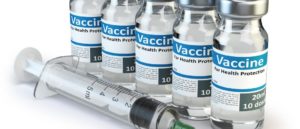April is Oral Cancer Awareness month. As we have discussed in a previous blog, HPV has become one of the leading causes of oral cancer in the US. It is estimated that about 70-80% of adults in the US will carry HPV at some point in their lives. The good news is, we have a highly effective way to nearly eliminate that risk for future generations.
Vaccinations against HPV such as Gardasil are now recommended for all boys and girls from about age 11 to 12, although it can be administered as young as 9 years old. Because HPV is primarily spread through sexual contact, it is essential to administer the vaccine before teens may become sexually active. Research indicates that the virus may be spread through other means, such as public shower floors or other shared surfaces.
Studies throughout the Western world have shown significant drops in the rates of HPV-related cervical cancers in young women who received the vaccine, and even some reduction in unvaccinated women due to the benefit of herd immunity; by reducing the overall prevalence of HPV in the population at large, individuals who are unable to be vaccinated also benefit. However, this only works if most people become vaccinated.
Obviously, it’s great we’re able to reduce the risk for cervical cancer in women. But what does this have to do with oral cancer? HPV vaccines protect against the same strains of the virus that cause oral cancers and other types of reproductive cancers as well. (This is part of why males should get the vaccine, by the way.) While we do not have the same depth of research on HPV vaccines and oral cancer specifically, the vaccine works throughout the body to prevent contracting strains of HPV that cause oral cancer.
Ideally, the vaccine should be administered to young patients as described above, before they’ve had the chance to get HPV. However, evidence now shows that the vaccine still has value for adults, even if they have already been exposed to the virus. One study showed that adults who had antibodies (meaning they had HPV in the past, but their system had already overcome it) were at about 58% less risk for developing cancer from the virus if re-infected, and even patients with active HPV could expect about a 25% reduction in their risk. Definitely worth asking your doctor about. Keep those smiles healthy and cancer-free, Orlando, and vaccinate your family!


